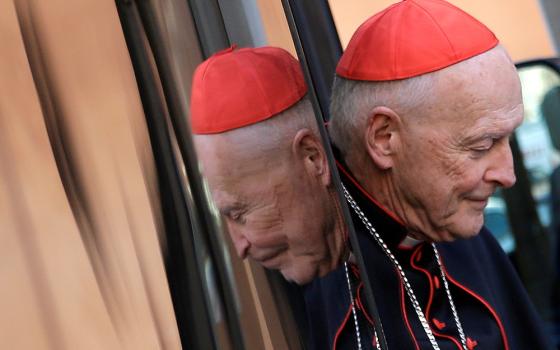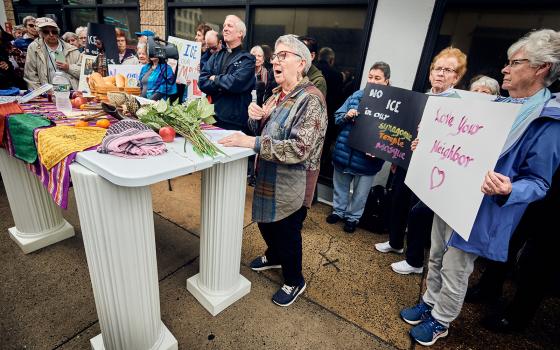During Pope Benedict XVI's visit to the Great Synagogue of Rome on Sunday, Jan. 17, a small number of Holocaust survivors from Italy's Jewish community were on hand wearing blue-and-white scarves. They presented the pope with a letter, which alludes to "the silence of those who could have done something" -- widely understood in the Italian media as a reference to Pope Pius XII, whose cause for sainthood was recently advanced by Benedict XVI.
The following is an NCR translation of the survivors' letter, which was published in the Jan. 18 edition of Corriere della Sera, the main Italian daily.
* * *
Your Holiness:
Our presence on the occasion of your visit to the Synagogue of Rome represents a form of witness to the tragic fate suffered by millions of Jews in the camps of extermination. We, the survivors of the Nazi effort to systematically exterminate our people, have resisted that which was the true evil: the destruction of an identity, through the destruction of an entire people.
There are other stories like ours, but they are stories without a voice, stories that are mute. For that reason, in the memory of those who are not here, those who did not return as we did, we leave our witness to history, so that what happened will not happen again.
Auschwitz is still relevant for the society in which we live. Everyone has their own fault for what happened, as six million people were exterminated solely for being born Jewish. We are here, but we never left Auschwitz. We are here, but our thoughts go every night to those who remained in Auschwitz without a name and without life. We have never lost our faith in people, but people never came to our aid.
The silence of those who could have done something has marked our lives, and those of our children who have shared our suffering all these years. We recovered our dignity, which had been derided, trampled upon, and violated in the camps, thereby reinforcing that which is the most beatiful thing we have: our identity as Jews.
We have passed beyond a sense of human destitution, at the level of the most utterly exploited objects. But if the best way of defending oneself from heavy memories is to prevent them from coming to mind, our hope is that the silence of those who did not prevent this absolute evil will be overcome by the cry of those who desire that what happened will not happen again, so that our yesterdays will not be their tomorrows.



